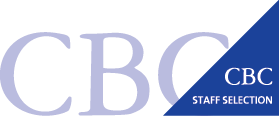Understand the Purpose of the Interview
In every interview, regardless of how junior or senior the position, the interviewer will be probing for the answers to three basic questions:
- Can you do the job? (Your skills, qualifications, experience)
- Will you do the job? (Your motivation, attitudes and career goals)
- Will you fit into the team? (Your cultural match)
Also understand that most employers now recognise the link between past and future behaviour and will be attempting to ascertain previous and current performance to answer the above questions.
Preparation will give you the Edge
If you are well prepared you have the foundation for a successful interview. You should certainly focus on the following:
- Be totally clear about the exact time, date and place of the interview and the contact name and position
- Research into the organisation so that you know about its size, market sector, products and services, locations, recent growth and any recent headline news. Also look for specific information regarding your discipline. An excellent source of information is the Internet
- Review your own Résumé and have a clear understanding of your key responsibilities and achievements at your current and past employers
- Review your probable answers to likely questions in the interview. Your goal should be to provide answers that are “tailored” to the position and paint the picture of you being positive and with the potential to add value
Likely questions could include:
- Tell me about yourself?
- What value have you added to your current employer?
- Tell me about your greatest problem at work. How did you solve it?
- What are the characteristics of a good…(whatever the job you are applying for)? Do you have those characteristics? Give examples
- What are your career goals? How will you achieve them?
- Describe the environment in which you would wish to work
Interviews are a two-way process and you must be able to glean information about the company to make an informed decision. Review the questions you wish to ask the interviewer.
Improve Your Technique
You only get one chance at a first impression. Ensure that you are well groomed and that your clothes reflect the business image you wish to project. Below are some suggestions for improving your technique in the interview.
- Arrive early. However, if you think you may be late ring first to apologise
- Good presentation is essential
- The first five minutes are vital, so greet the interviewer enthusiastically (quite possibly using their surname) and (definitely) shake their hand firmly
- Learn to listen as well as talk, it will give you valuable clues as to the responses required
- Watch your body language. Interviewers will recognise a lack of congruence between what you and your body are saying
- Smile; it builds a bridge between you and the interviewer
When answering questions use “action” words such as “achieved”, “managed”, “improved”, to show that you can add value, solve problems and exploit opportunities.
- However, don’t “oversell” yourself or embellish the truth
- Don’t over-answer questions; keep answers informative but relatively brief
- Do not ask about remuneration until at least the second interview. If you are asked about your expectations, give as general an answer as you can until you know that they wish to make you an offer
Avoid Being Negative
Since the interviewer will be looking for positive likeable people, any persistent, negative characteristics you display will be noticed and will count against you. Some negatives common among senior as well as junior executives include:
- Poor personal appearance
- Insufficient knowledge about the company
- Lack of interest or enthusiasm
- Lack of detail about experience and abilities
- Over-emphasis on personal gain
- Lack of purpose regarding your career
Closing the Interview
A positive close can sometimes rescue an otherwise average interview performance. Reaffirm your interest in the position (you can always change your mind later) and ascertain the next step in the selection process. Thank the interviewer for their time and depart with another positive handshake and sustained eye contact.
Post-Interview
After the interview, call your consultant at CBC Staff Selection and discuss the interview with him/her. It will help you with your assessment of the meeting and your consultant will need to know your thoughts before speaking with the client.
More Advice
If you feel you need more advice on interview technique please call us. We are always pleased to help. Good luck with your interviews and your job search.

